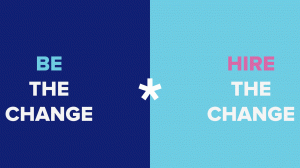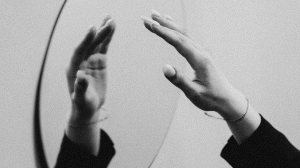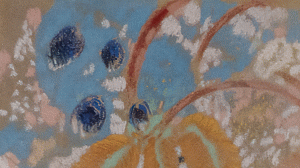Originally published June 13, 2016.
Ethics and business go hand in hand, but this relationship is not always a responsible one. How can the business world work toward new business models where ethical issues are resolved?
Sneep, a student network for ethics in economics and practice, wants to help reconsider the 21st century economy and to overcome the limitations of classical economics. Sneep primarily works through educational portals such as universities, where students form local groups and discuss issues of ethics in the business and corporate world. The goals is to flourish ideas students have that are out-of-the-box strategies to create sustainable management in both theory and practice.
tbd* got the opportunity to talk with Matthias from Sneep to tell us more about the organization, some challenges Sneep faces, the future of the business world and more!
Tell us about Sneep - what is the organization’s mission?
When the network was funded in 2013, the first vision of Sneep was to bring the topics of business ethics and ethics in economics to universities. We asked how the structure of firms can promote ethical behavior, how human nature needs to be taken into account when designing business processes or what the responsibility of companies in a society looks like. We found that it was about time to have ethical reflections incorporated in the economical university education — which has been and to a large extent still is neo liberally dominated. The main goal was to start a network that would give students the opportunity to have those ethical reflections in their university.
This happened in two ways: Internally with reading circles, group discussions and by trying to do lobbying for the implementation of lectures and seminars regarding these topics into the everyday university curricula.
But Sneep is far more than this. More than 30 groups in Germany not only do practical projects like sustainability consulting or setting up more ambitious recycling programs at their universities, but also organize events — just like the Munich group does with a fair fashion show for the winter term — with the goal of reaching a few hundred students.
The mindset of students is changing alongside the university curricula at many institutions in Germany, but looking at the options at some big institutions like the LMU in Munich, we see that there are not many possibilities of alternative economic thinking offered to the students. When they are though, they are not in economics but in the philosophy and theology departments. This needs to change if we take the current economical situation and where it is heading seriously.
How does Sneep challenge and encourage students to think outside of the “klassischer Ökonomie“ paradigm?
Everyone nowadays is sceptical when it comes to believing that an international firm complies with human and labour rights or environmental standards. Our topics yield towards specific or systemic understanding of possible ways in how to handle these problems. Students are asking themselves how to make such transformation possible and are searching for options to help this process. Sneep has a big network of companies and startups that have alternative business models as well as scientists and professionals who deal with such questions. By this, Sneep can be seen as a place where ideas outside of classical economics can flourish. But, in the end all this is triggered by the genuine interest of people in these topics which is quickly rising.
Based on your experience and observations, how do you think the next generation workforce perceives work and career? What are students main concerns when looking for their first job?
It really depends a lot on personal backgrounds and motivations. But the feeling is that we can see a general shift of motivation behind job decisions. More and more people have higher expectations towards their employer than just the monthly earnings. "There is an ongoing shift in the order of priorities, from a how-what structure to a why-what-how structure." Employers have adapted to this by telling stories for the advertisement of their jobs to withstand the competition for the most wanted employees and by this jump in on this structural change.
Work is not only seen as necessary to sustain one's lifestyle, but the goal of it becomes more important. By this, careers will not be as linear as they have been, jobs, positions and companies will become more exchangeable as expectations are rising. This does not mean that professionality will decline. People are willing to work hard but the cause must be the right one. This is true also for everyone new in work life. The perfect position seems to be one with potential, a steep learning curve in a company compliant with the highest ethical standards towards the product, the fabrication process that allows flexibility if needed, and offers an interesting work environment.
In your opinion, what could a “new economy” look like and what needs to happen for alternative business models to become mainstream?
There is no “one vision” that we as a network have. Some trends need to be noted though; Digitalization and automatization have huge impacts on many lines of business. E.g., groceries are already being directly delivered to homes and more and more of our everyday consumption is taking place online. Driverless public transport already exists in big cities and this will soon to be seen on our streets, starting with trucks and private transport shortly after. In retail, logistics and many more there are already plenty of options for automatization. Then, the number of fintechs popping up suggests huge changes in our relation with as well as use and management of money and capital on the corporate and private side. Also, the current use level of extractive resources will be impossible to sustain for very long.
A “new economy” must find answers to these shifts in how, where and what we will work in the future. New cyclic production “chains” are inevitable as resources get scarcer; Alternatives to pure shareholder-value based approaches must thrive to overcome short-sighted business strategies. There are many more points that need to be addressed and it is not the sole responsibility of businesses to address them, because there are massive social changes involved.
Politics and science bear as much responsibility for the promotion of alternative business models as economy does. The first thoughts an entrepreneur has are about financial stability and (hopefully) the sustainability of the product. An alternative business model can only become mainstream if the condition of stability is guaranteed. Often, new ways of doing business are more costly and therefore need top-down support from the political dimension. Science already shows that more independence and less working hours or more participation in the management can have very positive effects on companies in some lines of business. Science will continue to uncover the hard facts about how to shape our work environments in the best ways. With all this help, any entrepreneur with innovative ideas can climb the slope of Rogers “diffusion of innovation” curve more easily and contribute directly to this change.
How is Sneep funded?
Partially by the DNWE (Deutsches Netzwerk Wirtschaftsethik) and small businesses as sponsors. Local groups do their own fundraising to pay for the expenses of the events, but there is a middle term goal of developing a network wide fundraising strategy to support those local groups more and to lower the costs for the network meetings that take place twice a year.
One of the key aspects of Sneep’s work is their local groups. Can you tell us a little about how they work and what they do?
There are more than 30 groups in Germany and Switzerland and they all are very different in structure and topics. It always depends on the interests and wishes that everyone has. Sneep, through it's name and network, opens up many possibilities for cooperations. The activities in different groups range from reading circles, sustainability consulting activities to setting up big events on topics in sustainability like the fair fashion show we are planning in Munich.
Sneep is a mixture of people who wanted to get into therooy or practive of doing business sustainably and with specific ideas or topics on their minds they wanted to dive deeper into.
How can others get involved?
Students can join the local groups or if not available yet – start them in their cities. There is support for founding new groups and it is happening all the time. Further information can be found at www.sneep.info or local groups can be contacted by writing to city@sneep.info, e.g. for muenchen@sneep.info one will reach us. Companies, projects and private people are always invited to contact us if they are interested in cooperations, supporting us financially or similar.
What makes you a changer?
We address the issues of ethics in economics and sustainability where it is needed: In the education at universities. The members of our network are engaged students who will often take responsible positions later on and bring the Sneep mindset to their future jobs and rethink economics and business. Sneep can be the perfect place to put individual ideas to action, to find people with the will of reflecting on alternative forms of economics and to immerse (deeper) into all these fields.











